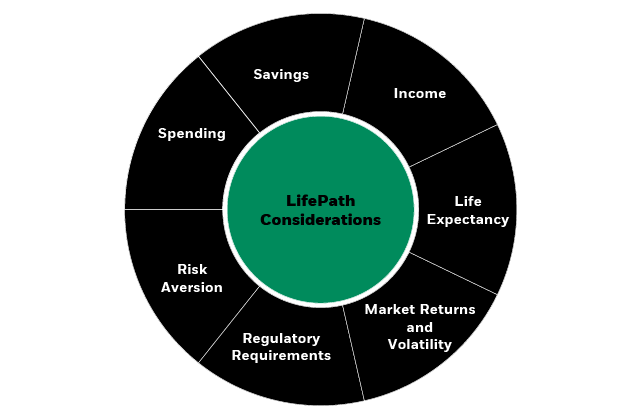Before you proceed, please take a moment to review and accept the following Terms and Conditions:
Global Institutional Website Attestation
Please read this page before proceeding, as it explains certain restrictions imposed by law on the distribution of this information and the countries in which our funds are authorised for sale. It is your responsibility to be aware of and to observe all applicable laws and regulations of any relevant jurisdiction.
By clicking to enter this website, the entrant has agreed that you have reviewed and agreed to the terms contained herein in entirety including any legal or regulatory rubric and have consented to the collection, use and disclosure of your personal information as set out in the Privacy section referred to below.
By confirming that you have read this important information, you also:
- Agree that all access to this website by you will be subject to the disclaimer, risk warnings and other information set out herein; and
- Agree that you are within the respective sophisticated type of audience (or professional/sophisticated /institutional/ qualified investors, as such term may apply in local jurisdictions), and where applicable, meet the requisite investor qualification, for your respective jurisdictions.
The information contained in this website (this “Website”) including the documents herein (together, the “Contents”) is made available for informational purposes only.
Access Subject to Local Restrictions
The information contained on the LifePath Paycheck website is intended for the following audiences in the U.S. only: Eligible collective investment fund investors who are: (1) U.S. retirement, pension, profit-sharing or stock bonus plans that are qualified under Internal Revenue Code (“IRC”) Section 401(a) and tax-exempt under IRC Section 501(a); or (2) U.S. Governmental 457(b) plans.
The information contained on all other websites denoted as “Institutional” in the top right corner is intended for the following audience in the U.S. only: institutional investors including any: (A) person described in FINRA Rule 4512(c), regardless of whether the person has an account with a member; (B) governmental entity or subdivision thereof; (C) employee benefit plan, or multiple employee benefit plans offered to employees of the same employer, that meet the requirements of Section 403(b) or Section 457 of the Internal Revenue Code and in the aggregate have at least 100 participants, but does not include any participant of such plans; (D) qualified plan, as defined in Section 3(a)(12)(C) of the Exchange Act, or multiple qualified plans offered to employees of the same employer, that in the aggregate have at least 100 participants, but does not include any participant of such plans; (E) member or registered person of such a member; and (F) person acting solely on behalf of any such institutional investor.
This website and its content is not intended for, or directed to, investors in any countries or jurisdictions that are not enumerated above.
This Website and the Content herein is not intended for, or directed to, any person other than to any sophisticated type of investors (or professional/sophisticated /institutional/ qualified investors, as such term may apply in local jurisdictions), and should not be relied upon by any other persons or redistributed to retail public in certain aforementioned jurisdictions.
This Website or information contained or incorporated by reference has not been, and will not be submitted to, become approved/verified by, or registered with, any relevant government authorities under the local laws. This Website is not intended for and should not be accessed by persons located or resident in any jurisdiction where (by reason of that person's nationality, domicile, residence or otherwise) the publication or availability of this Website is prohibited or contrary to local law or regulation or would subject any BlackRock entity to any registration or licensing requirements in such jurisdiction. It is your responsibility to be aware of, to obtain all relevant regulatory approvals, licenses, verifications and/or registrations under, and to observe all applicable laws and regulations of any relevant jurisdiction in connection with your entrant to this Website.
If you are unsure about the meaning of any information provided, please consult your financial or other professional adviser.
No Offer
The Contents have been prepared for informational purposes only without regard to the investment objectives, financial situation, or means of any particular person or entity, and the Website is not soliciting any action based upon them. The Contents are not to be construed as a recommendation or an offer or invitation to trade any securities or collective investment schemes nor should any Contents form the basis of, or be relied upon in connection with, any contract or commitment on the part of any person to proceed with any transaction. The Contents are also not to be construed as soliciting or promoting any financial products or services.
No Warranty
The Contents are published in good faith but no advice, representation or warranty, express or implied, is made by BlackRock or by any person as to its adequacy, accuracy, completeness, reasonableness or that it is fit for your particular purpose, and it should not be relied on as such. The Contents do not purport to be complete and is subject to change. You acknowledge that certain information contained in this Website supplied by third parties may be incorrect or incomplete, and such information is provided on an "AS IS" basis. We reserve the right to change, modify, add, or delete, any content and the terms of use of this Website without notice. Users are advised to periodically review the contents of this Website to be familiar with any modifications. The Website has not made, and expressly disclaims, any representations with respect to any forward-looking statements. By their nature, forward-looking statements are subject to numerous assumptions, risks and uncertainties because they relate to events and depend on circumstances that may or may not occur in the future.
No information on this Website constitutes business, financial, investment, trading, tax, legal, regulatory, accounting or any other advice. If you are unsure about the meaning of any information provided, please consult your financial or other professional adviser.
No Liability
BlackRock shall have no liability for any loss or damage arising in connection with this Website or out of the use, inability to use or reliance on the Contents by any person, including without limitation, any loss of profit or any other damage, direct or consequential, regardless of whether they arise from contractual or tort (including negligence) or whether BlackRock has foreseen such possibility, except where such exclusion or limitation contravenes the applicable law.
You may leave this Website when you access certain links on this Website. BlackRock has not examined any of these websites and does not assume any responsibility for the contents of such websites nor the services, products or items offered through such websites.
Intellectual Property Rights
Copyright, trademark and other forms of proprietary rights protect the Contents of this Website. All Contents are owned or controlled by BlackRock or the party credited as the provider of the Content. Except as expressly provided herein, nothing in this Website should be considered as granting any licence or right under any copyright, patent or trademark or other intellectual property rights of BlackRock or any third party.
This Website is for your personal use. As a user, you must not sell, copy, publish, distribute, transfer, modify, display, reproduce, and/or create any derivative works from the information or software on this Website. You must not redeliver any of the pages, text, images, or content of this Website using "framing" or similar technology. Systematic retrieval of content from this Website to create or compile, directly or indirectly, a collection, compilation, database or directory (whether through robots, spiders, automatic devices or manual processes) or creating links to this Website is strictly prohibited. You acknowledge that you have no right to use the content of this Website in any other manner.
Privacy
Your personal information, such as name, email address and other personal details, will be processed in accordance with BlackRock’s Privacy Policy.
Please note that you are required to read and accept the terms of our Privacy Policy before you are able to access our websites.





